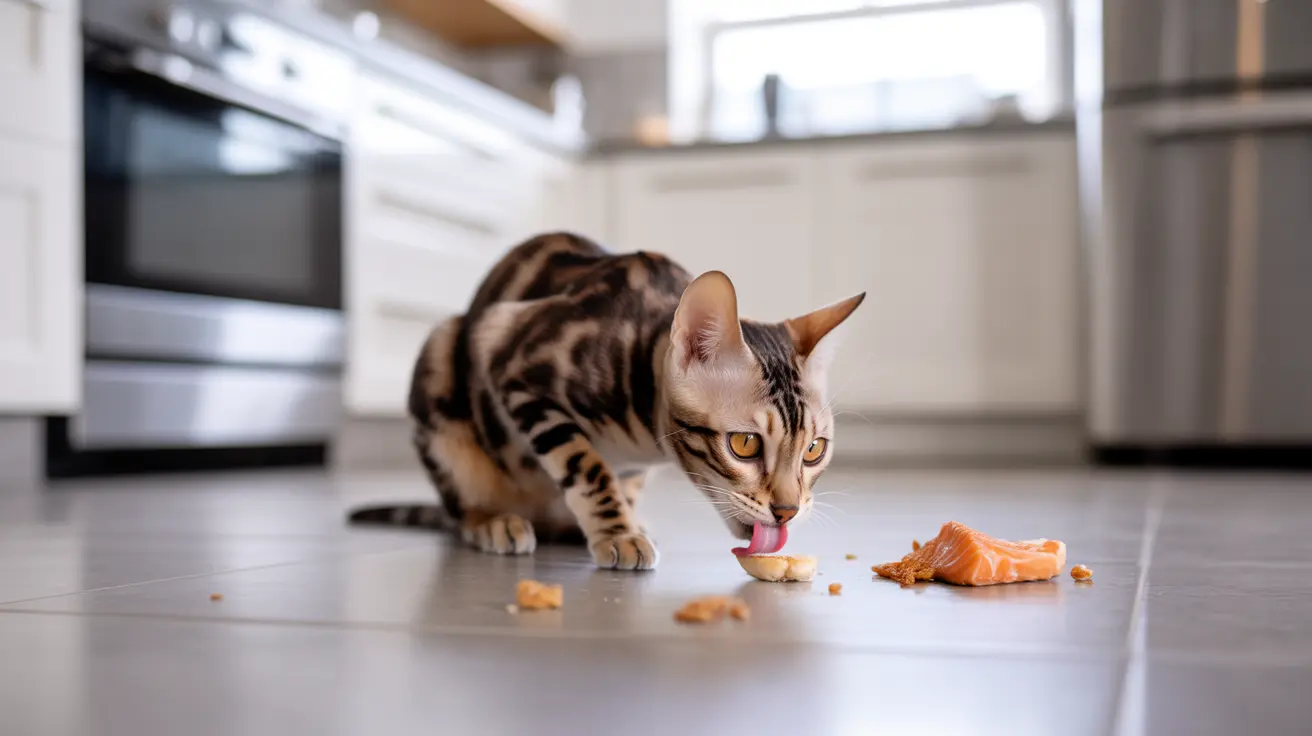If you've caught your cat obsessively licking the floor, you're not alone. This peculiar behavior can range from harmless exploration to a sign of underlying health issues. Understanding why cats lick floors is crucial for ensuring your feline friend's wellbeing and knowing when to seek veterinary care.
In this comprehensive guide, we'll explore the various reasons behind floor licking in cats, from simple curiosity to more serious medical conditions, and provide practical solutions to address this behavior.
Common Reasons for Floor Licking Behavior
Environmental Exploration
Cats are naturally curious creatures that explore their environment through taste and smell. Their sensitive tongues and acute sense of smell can detect microscopic food particles, spills, or interesting scents that we humans can't perceive. Even thoroughly cleaned floors may retain traces that attract your cat's attention.
Food and Water Investigation
Many cats lick floors near their feeding areas or kitchen, searching for food remnants or water droplets. This behavior might increase if they're hungry or thirsty, even with full water bowls nearby. Some cats prefer running water or novel water sources, leading them to seek moisture from unexpected places.
Medical Causes for Concern
Compulsive Behaviors and Pica
Sometimes, floor licking can indicate a condition called pica, where cats compulsively lick or eat non-food items. This behavior might stem from nutritional deficiencies, anxiety, or underlying health issues. If your cat's licking seems obsessive or is accompanied by attempts to eat unusual items, consult your veterinarian.
Physical Health Issues
Floor licking can also signal various health problems, including:
- Gastrointestinal disorders
- Neurological conditions
- Nutritional deficiencies
- Dental problems
- Anxiety or stress
Prevention and Solutions
Environmental Enrichment
Provide your cat with adequate mental stimulation through:
- Interactive toys
- Climbing structures
- Puzzle feeders
- Regular playtime
- Window perches for outdoor viewing
Safe Home Environment
Create a cat-friendly space by:
- Using pet-safe cleaning products
- Keeping floors clean and free of harmful residues
- Providing multiple fresh water sources
- Maintaining consistent feeding schedules
When to Seek Veterinary Care
Contact your veterinarian if your cat's floor licking:
- Develops suddenly
- Becomes excessive or compulsive
- Is accompanied by other behavioral changes
- Occurs alongside physical symptoms like vomiting or lethargy
Frequently Asked Questions
Why is my cat licking the floor even after I've cleaned it thoroughly?
Cats can detect microscopic residues and scents that persist even after thorough cleaning. Their sensitive noses can pick up traces of food, cleaning products, or other interesting smells that aren't visible to humans.
Can floor licking in cats indicate health problems like pica or anemia?
Yes, persistent floor licking can be a symptom of various health conditions, including pica, nutritional deficiencies, or underlying medical issues. If accompanied by other symptoms, consult your veterinarian for proper diagnosis.
How can I tell if my cat's floor licking is caused by stress or boredom?
Stress-related licking often occurs during changes in routine, environment, or following stressful events. It may be accompanied by other anxiety symptoms like hiding, excessive grooming, or changes in appetite.
Are certain floor types or residues more likely to attract my cat's licking behavior?
Yes, cats may be particularly attracted to smooth surfaces like tile or wood, especially if they retain food residues or cleaning product scents. Some floor materials might also contain compounds that naturally attract cats.
When should I take my cat to the vet for excessive or new floor licking habits?
Seek veterinary attention if the behavior is sudden, excessive, or accompanied by other symptoms like changes in appetite, lethargy, or weight loss. Early intervention can prevent potential complications and ensure your cat's health.
Understanding why your cat licks the floor is the first step in addressing this behavior appropriately. While occasional floor licking may be harmless, staying attentive to changes in this behavior helps ensure your cat's continued health and happiness.






